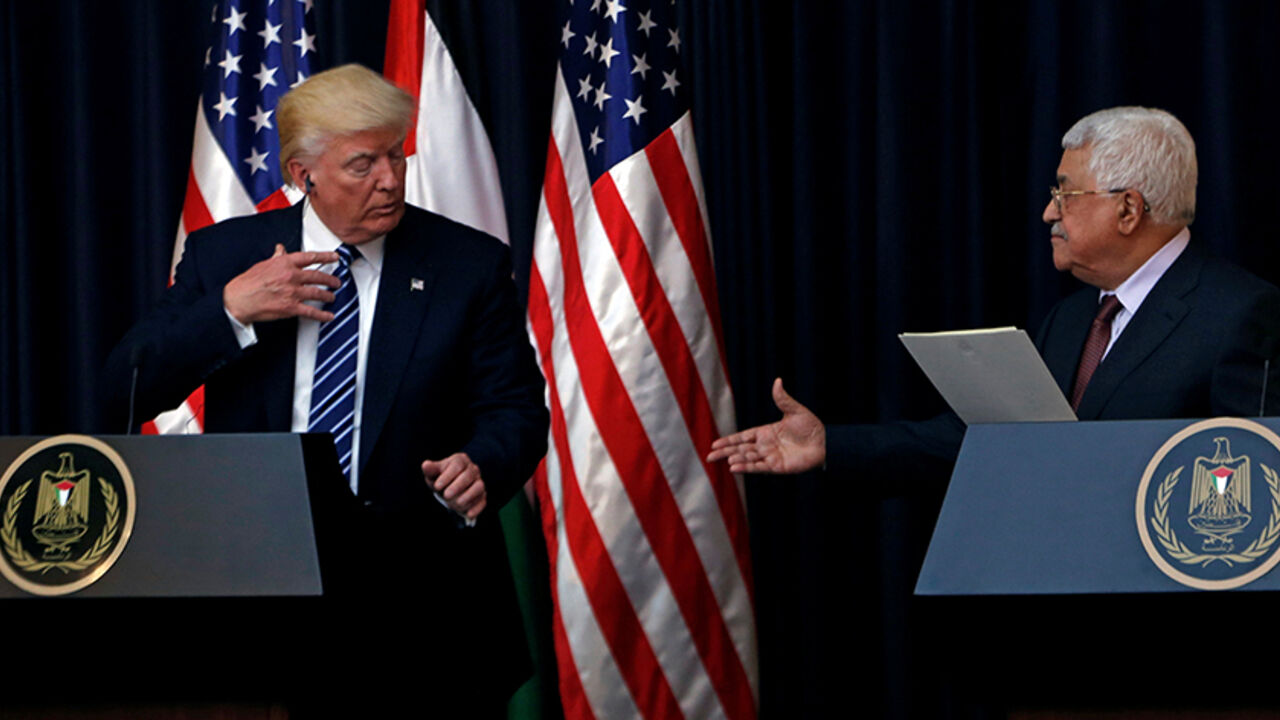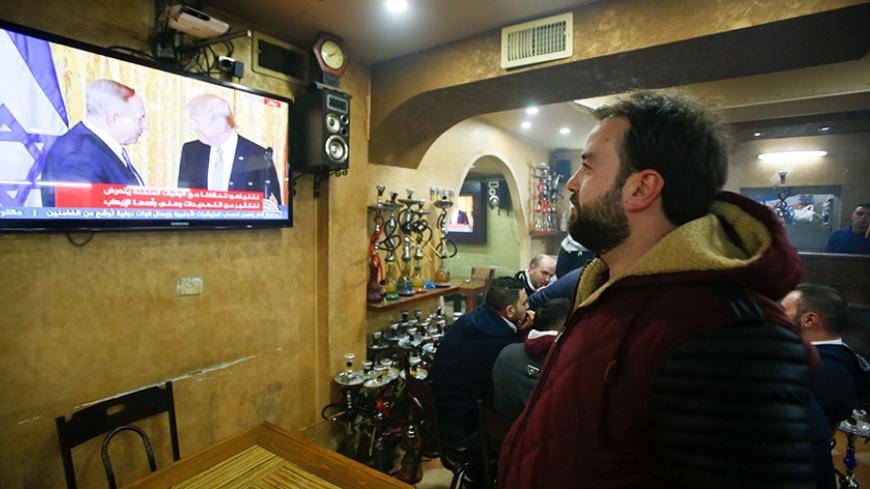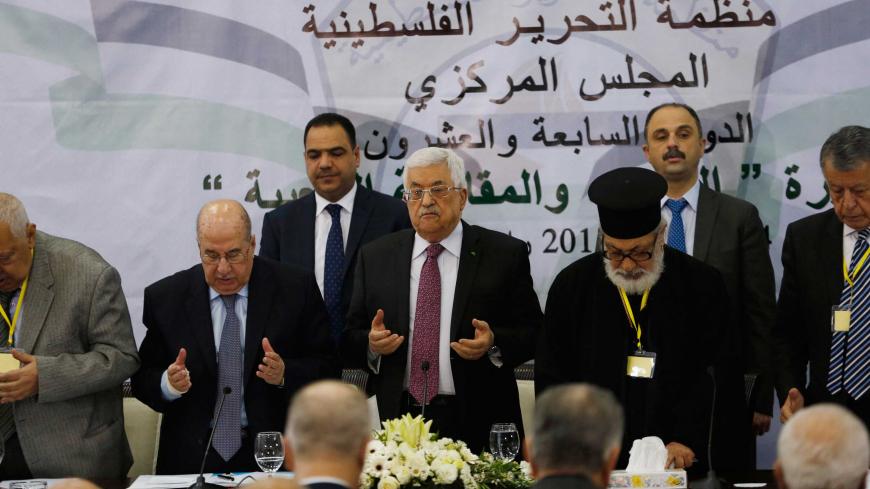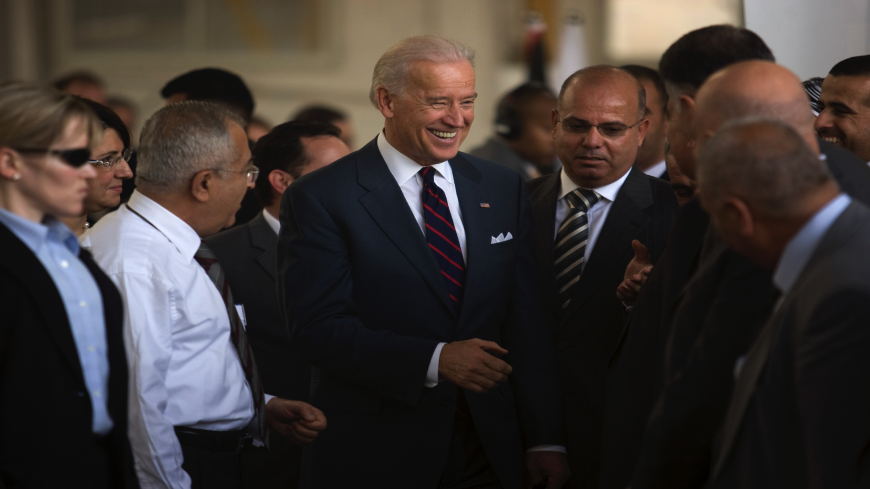Trump makes no promises during Bethlehem whistle-stop
US President Donald Trump hit most of the right notes on his visit to Palestine, but what Palestinians need from a peace process is likely not on Trump’s agenda.

The extravagant reception that US President Donald Trump found in Saudi Arabia and the gigantic military and trade deals signed there have left many observers confused as to how the trip will affect the Palestinian-Israeli conflict.
By all measures, Trump has hit most of the right notes. He met with Palestinian leader Mahmoud Abbas, visited the Palestinian city of Bethlehem and spoke repeatedly about peace.





